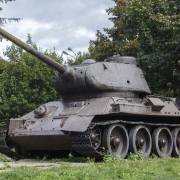What is Rukun Negara?
Topic of Study [For H2 History Students]:
Paper 2: Search for Political Stability
Section B: Essay Writing
Theme I Chapter 2: Approaches to National Unity
Historical origins of the national ideology
The Rukun Negara (National Principles) was introduced on 31 August 1970 by the Malaysian Government to celebrate the 13th anniversary of the nation’s independence (Hari Merdeka).
Its creation as a national ideology was in response to “13 May” incident in 1969 , following the general election in Malaysia. The outbreak of riots had resulted in the creation of the National Operations Council (Majlis Gerakan Negara) to restore peace and stability to Malaysia till 1971.
From then on, the Rukun Negara was created to forge national unity among the citizens.
Details of the National Principles
According to this national ideology, the citizens of Malaysia pledge to achieve the following five principles:
- Belief in God
- Loyalty to King and Country
- Upholding the Constitution
- Rule of Law
- Good Behaviour and Morality
Bahagian Kedua Menggariskan Lima Prinsip Rukun Negara yang berikut:
– Kepercayaan Kepada Tuhan
– Kesetiaan Kepada Raja dan Negara
– Keluhuran Perlembagaan
– Kedaulatan Undang-undang
– Kesopanan dan Kesusilaan
Excerpt from Rukun Negara, Department of Information, Malaysia
Implementation: Education
Students are required to sing the national anthem (Negaraku) and recite the Rukun Negara during school assemblies Over the years, this ideology has become a guiding principle to encourage racial harmony and mutual respect.
“Apart from promoting unity among the people, Rukun Negara also maintains the democratic way of life; creates a just society; ensures a liberal approach to customs and culture; and develops a progressive society based on modern science and technology.“
Tan Sri Lee Lam Thye, Malaysia Unity Foundation [From New Straits Times, 9 February 2020]
Other approaches were used as well such as the creation of an organisation to promote the ideology. The Kelab Rukun Negara (Rukun Negara Club) was formed in schools to conduct activities focused on promoting the appreciation and practice of this ideology among students.
What can we learn from this article?
Consider the following question:
– Assess the significance of ideology in supporting the government’s efforts in forging national unity [to be discussed in class].
Join our JC History Tuition and learn to organise your content effectively. We provide study notes, essay outlines and source based case study practices to ensure that you have adequate support to be ready for the GCE A Level examination. Our lessons are available for those taking either H2 or H1 History.
The H2 and H1 History Tuition feature online discussion and writing practices to enhance your knowledge application skills. Get useful study notes and clarify your doubts on the subject with the tutor. You can also follow our Telegram Channel to get useful updates.
We have other JC tuition classes, such as JC Math Tuition and JC Chemistry Tuition. For Secondary Tuition, we provide Secondary English Tuition, Secondary Math tuition, Secondary Chemistry Tuition, Social Studies Tuition, Geography, History Tuition and Secondary Economics Tuition. For Primary Tuition, we have Primary English, Math and Science Tuition. Call 9658 5789 to find out more.











